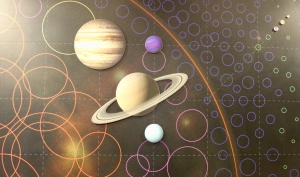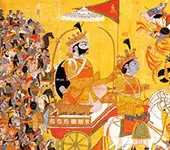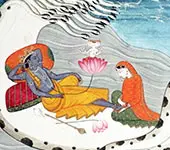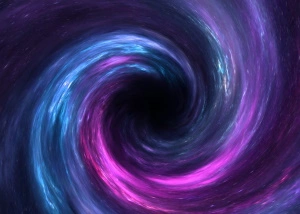What Is Vedanta?
Listen to the audio above

Transcript
(Click here to read more)
Vedanta is the most refined and the most important among the philosophies of Sanatana Dharma. You can say that Vedanta is the culmination of Indian philosophical thought. Nothing better has come after Vedanta. The whole of Hinduism is in some way or the other today connected to Vedanta. Vedanta is the essence and real meaning of the Vedas. Why is it necessary to lay down the real essence of the Vedas? Because for the layman it may look like there are contradictions within the Vedas. Some verses say that the world originated from Narayana....
Transcript
(Click here)
Vedanta is the most refined and the most important among the philosophies of Sanatana Dharma.
You can say that Vedanta is the culmination of Indian philosophical thought.
Nothing better has come after Vedanta.
The whole of Hinduism is in some way or the other today connected to Vedanta.
Vedanta is the essence and real meaning of the Vedas.
Why is it necessary to lay down the real essence of the Vedas?
Because for the layman it may look like there are contradictions within the Vedas.
Some verses say that the world originated from Narayana.
Some verses say that the world originated from Rudra.
Some verses say that the world originated from Brahma.
So it is necessary to bring finality to all these.
Vedanta establishes that they are not contradicting each other but they are complementing each other.
Vedas don't teach us different or divergent things.
Vedas are not giving us multiple options and telling us to take whichever we like.
This is exactly what Vedanta tells us.
The one and only central teaching of the Vedas is what Vedanta gives us.
The main texts of Vedanta Shastra are Brahma Sutra, Upanishads, and Bhagavad Gita.
They are called Prasthana trayi.
Brahma Sutras written by Badarayana are also called Vedanta Sutras or Shariraka Sutras.
In the Brahma Sutras you will find the Vedic thought well systematized.
They are very comprehensive statements, in the sutra format.
Sutras are very brief statements about a whole concept, in two or three, or four words.
Sutras are products of deep contemplation.
Brahma Sutras are directly connected to the Upanishads.
Sutras need commentaries.
Without commentaries or interpretations, it is very difficult to understand the Sutras.
The most important commentators of the Brahma Sutras are Sankaracharya, Ramanujacharya, and Madhvacharya.
Sankaracharya's school of thought is called Advaita Vedanta.
Ramanujacharya's school of thought is called Vishishtadvaita Vedanta.
Madhvacharya's school of thought is called Dvaita Vedanta.
All three are based on the same Brahma Sutras but different from each other.
On the lighter side, the Brahma Sutras were written to reconcile the apparent contradictions in the Vedas but when the Brahma Sutras got interpreted, we ended up with three divergent views.
But again they are not contradictions.
Each one focuses on a particular aspect of reality.
It is with this understanding that you should approach these systems.
You can not say that any one of them is superior to the others.
To distinguish between the three systems is a very complex task and can not be the subject matter of a brief talk like this.
But as a starting point, I would like to share a few ideas.
Shankaracharya said that the world is just a superimposition of the unreal upon the real.
There is a rope.
In the darkness, you think that it's a snake.
There is no snake.
You are only thinking that it is there.
Snake is not a reality.
Only the rope is the reality.'
This is the relationship between the world and Brahman.
Brahman is the one and only reality.
The rest are only superimpositions.
Madhvacharya says that something that is unreal can not be superimposed.
The snake may not be there at that point in time.
But the snake has to be somewhere.
Otherwise, why would the thought of the snake even come to your mind?
But the reality of the world is dependent on Brahman.
The world can not exist without Brahman at its base.
In the Vishishtadvaita of Ramanucharya, the relationship between the world and Brahman is like the body and the soul.
The body will decay if the soul leaves the body.
The body does not have an independent existence,
If you see the world evolving around you, then Brahman is also part of that evolution.
See, all three are talking about Brahman as the absolute reality.
The difference is only about what the world is.
Recommended for you
Ardra Nakshatra Features

Everything you wanted to know about Ardra Nakshatra - Characteristics, career, health issues, marriage life........
Click here to know more..Human Nature - Comples Mix Of Good And Bad

Human nature is always a mix of both good and not-so-good. Exceptions are avataras like Sri Rama and Sri Krishna and some enlightened Sages. But then ....
Click here to know more..Hayagriva Ashtottara Shatanamavali

ॐ हयग्रीवाय नमः।ॐ हयग्रीवाय नमः।ॐ महाविष्णवे नमः।ॐ केश�....
Click here to know more..
English Topics
Mystique
Click on any topic to open
- 31 Death is a New Beginning
- 30 Kinetic Energy, Potential Energy, And The Universe
- 29 What Is The Need For Bhakti Yoga?
- 28 How does it feel when Kundalini is awakened?
- 27 Why Rudra Is Saluted Twice
- 26 Difference Between Jeeva, Ishwara, and Parameshwara
- 25 Some Folk Beliefs In Ancient Maharashtra
- 24 What Is Vedanta?
- 23 Who Will You Be In Your Next Birth?
- 22 Garbha Upanishad
Please wait while the audio list loads..
30
Ganapathy
Shiva
Hanuman
Devi
Vishnu Sahasranama
Mahabharatam
Practical Wisdom
Yoga Vasishta
Vedas
Rituals
Rare Topics
Devi Mahatmyam
Glory of Venkatesha
Shani Mahatmya
Story of Sri Yantra
Rudram Explained
Atharva Sheersha
Sri Suktam
Kathopanishad
Ramayana
Mystique
Mantra Shastra
Bharat Matha
Bhagavatam
Astrology
Temples
Spiritual books
Purana Stories
Festivals
Sages and Saints
